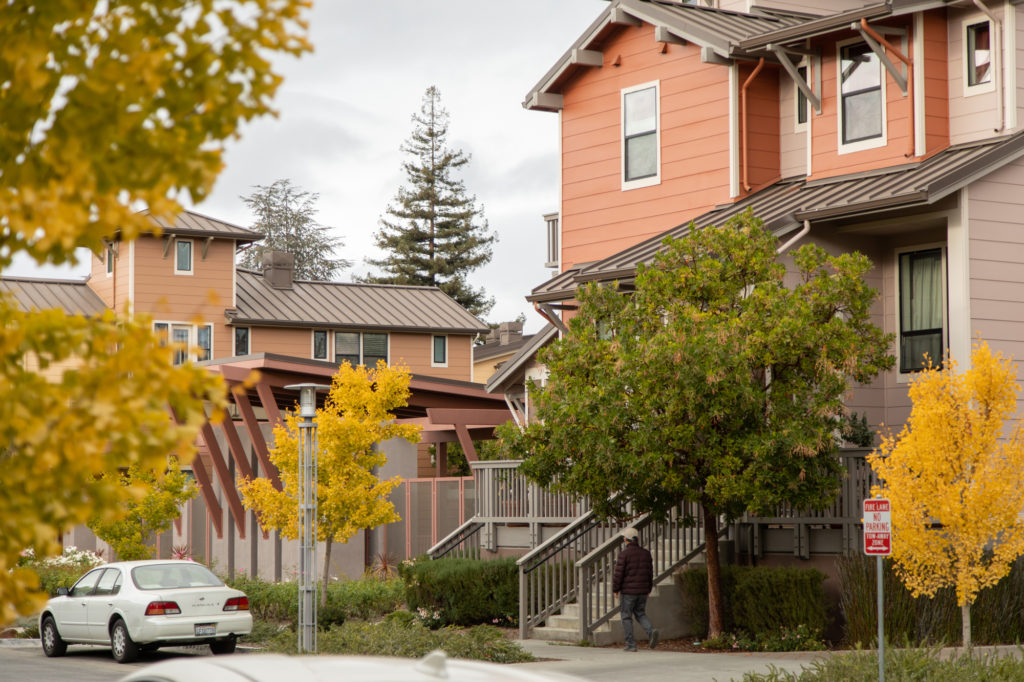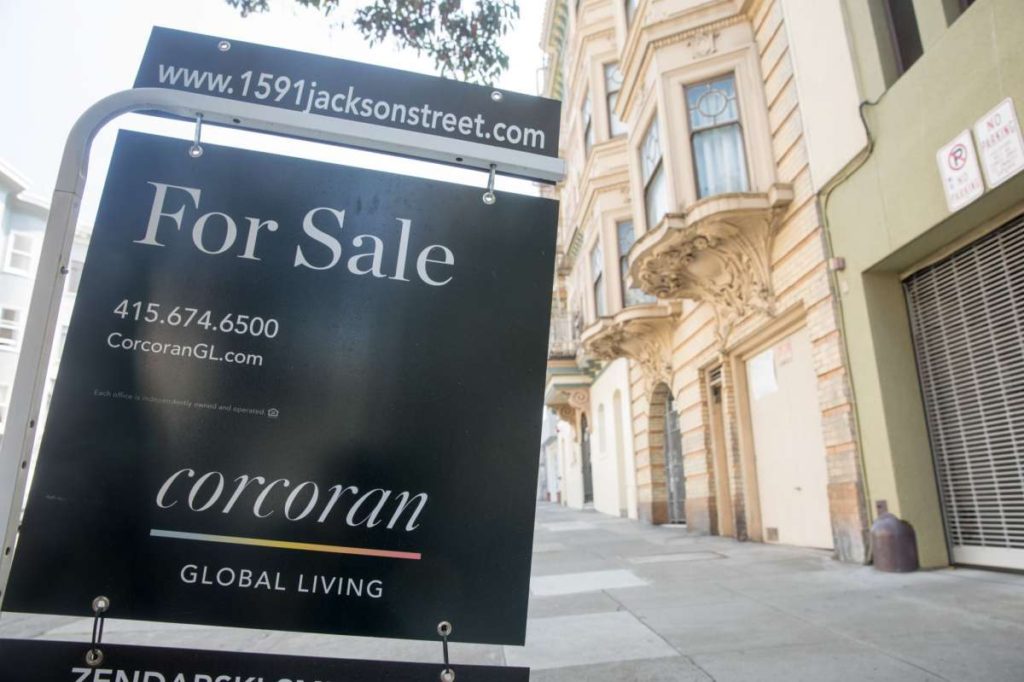
Tel: 551-580-4856 | Email: F.WINNIE.S@GMAIL.COM
New poll finds 71% of Bay Area residents think quality of life has declined
Most respondents say region is on the ‘wrong track’
By Kevin Forestieri / Mountain View Voice
10/13/2021

Bay Area residents grappling with the high cost of living, growing homelessness and high taxes say the quality of life has sunk in recent years, with a record number looking to leave the region altogether.
The grim appraisal, captured in a survey by Joint Venture Silicon Valley in partnership with Bay Area News Group, shows a stark decline in public perception of the Bay Area since the COVID-19 pandemic began last year. Polling of residents across five counties, including Santa Clara and San Mateo, found 56% of respondents are likely to leave in the next few years, up from 47% in 2020 prior to the pandemic.
The results show residents are frustrated with the perennial problems of Silicon Valley — high housing costs, more people living on the street and consternation over droughts and wildfires — but that COVID-19 may have tipped people over the edge, according to Russell Hancock, Joint Venture’s president and CEO.

“When you toss a highly infectious disease into the mix you get a smothering amount of anxiety,” Hancock said.
The survey, which was conducted late last month, found that 71% of those who responded felt the quality of life in the Bay Area is worse now than it was five years ago. The opinion was felt strongest among people ages 50 to 64 and those making a household income between $100,000 and $250,000. The perception also changes based on political affiliation, with 92% of those leaning Republican believing that quality of life has declined.
Top of mind for Bay Area residents is the high cost of housing, which 76% of respondents described as an “extremely serious” problem, followed by general cost of living at 68%, homelessness at 66% and the increasing frequency of wildfires and droughts at 60%.
Among those seeking to leave the Bay Area, the vast majority (84%) cited the high overall cost of living as a major reason, followed by housing costs (77%), quality of life (62%) and the amount of taxes (58%).
Though the survey draws a correlation between the pandemic and rising levels of anxiety and discontent, 66% of those polled said they approved of how their employer responded to the pandemic. And among those working from home, nearly all — 95% — say they want to continue working remotely at least some of the time. Only about one in three respondents (34%) want to continue to work from home all the time and slightly more than a third (36%) want to work from home “most” of the time.
A large number of Silicon Valley employers, including tech giants like Google and Apple, have delayed a full return to the office until this January, leaving many employees to work from home for nearly two years. During the extended hiatus, the survey found 44% of those working remotely have felt their work-life balance has improved. That number sinks to just 20% among those who have had to continue working in person during the COVID-19 pandemic.
The abrupt switch to telecommuting has been a mixed bag. Respondents say they are saving time normally spent sitting in gridlock traffic, and have far more flexibility in taking care of children and other family responsibilities during the day. On the other hand, the report by Joint Venture makes clear that it’s taken a psychological toll, and that the majority of those working from home feel more isolated and alone than prior to the pandemic.
“Across income levels and most demographic categories, majorities of residents feel more stressed, say their families are more stressed, feel that it has become harder to stay connected with family and friends, and are more worried and uncertain about the future,” according to the report.
Only a sliver of respondents (5%) said they wanted to make a full return to in-person work once the COVID-19 public health and employer restrictions have been lifted.
Kevin Forestieri writes for the Mountain View Voice, a sister publication of PaloAltoOnline.com.
诚招美国和加拿大法律服务代理
因公司发展需要,诚招美国和加拿大法律服务代理。
要求:
懂英语、或西班牙语、或法语。
能合法工作有社安号或工号。
无需改行, 可以兼职。
大学生和有销售经验优先考虑。
自雇生意公司发美国报税1099,加拿大T4A
有意了解详情, 请扫码加微信, 非诚勿扰!

Bay Area seller’s market is so hot they’re taking built-in furniture and leaving pool tables
By Tessa McLean
9/03/2021

Kelley Krock has been a licensed real estate agent in the Bay Area for more than 10 years. The market has almost always been hot during her tenure, but she’s never experienced a year quite like the past one. For starters, she’d never had a seller decide she wanted to take her granite countertops with her halfway through a sale.
When many homebuyers felt the pull to upgrade their living space amid the COVID-19 pandemic, it quickly became a seller’s market. Real estate agents in the area said they’ve seen sellers making demands that aren’t only unusual, they’re making deals much more complicated. While Krock’s seller ultimately decided to leave the granite countertops when she found out she’d have to move them at her own expense, smaller items also have disappeared before the closing date, like wall sconces or Sonos sound systems.
If items like this aren’t part of the sale, they need to be disclosed prior to the deal. When none of the lights turned on during the final inspection of a home where all the wall sconces were removed, Krock felt bad for the buyer. “Because there is no inventory the buyer decided to close anyway because they have no power,” Krock said. “There are three other people lined up behind them.”
Compass agent Nina Hatvany, who covers San Francisco, said she’s particularly noticed this with built-in furniture like wall-mounted shelving units or a wall-mounted console. She had a seller recently take a wall-mounted unit with them because they claimed they had purchased it at a fancy Italian furniture store and the only difference between this furniture and regular furniture was that this furniture didn’t have legs.
“We have seen a couple of sellers acting a little cavalierly,” Hatvany said. “I wouldn’t say that they are doing so because they can but more because they aren’t afraid that the deal will tank if they do.”
While the national housing market seems to be cooling off, according to Redfin, it hasn’t declined quite as much in the Bay Area. The number of listings going into contract in the Bay Area’s largest markets — Santa Clara, Alameda, Contra Costa and San Francisco — is slightly down from peaks hit earlier in spring, with the exception of Alameda County, which was slightly up from spring, according to data provided by Compass. Krock said there’s typically a slowdown when schools begin again, but she’s still seeing inflated prices throughout the area.
Median sales prices are up more than 15% in all nine Bay Area counties from 2019 to July 2021. In Contra Costa County, sales are up 39%. The percentage of home sales over list price are still at an all-time high at 80% as of spring 2021.
“It’s greed like I’ve never seen it before. People are getting $300,000 over list price and they’re countering and asking for another $100,000 dollars,” Krock said. “… I think it’s just this feeling like all the power in the world is theirs and they can ask for anything and for a while they were getting it.”
With a larger volume of transactions taking place, Leo Medeiros, a real estate agent with Compass, said he thinks it’s more common to hear of these types of stories. “Sellers can feel more inclined to have odd requests for things that must go when they move out as they are more in the driver’s seat,” said Medeiros. “Conversely, I can also see buyers, who are really eager to get into a home, have more willingness to accept a seller’s odd request.”
Perhaps more than sellers deciding to take objects with them, it’s the items they leave behind that can complicate a move for buyers. “Because we have such a mass exodus of baby boomers getting out of the state due to politics and taxes, they don’t want to carry all their stuff with them. So they’ll leave pool tables or dining room tables or huge leather sectionals behind,” Krock, who covers both Alameda and Contra Costa counties, said. “Some of them are doing the right thing and giving advance notice and then we negotiate, but I’ve had some instances where sellers move across the country and they’ve left furniture there and the buyers don’t want it and then it becomes my job to have it removed. It’s just very sloppy.”
Medeiros said these sellers just don’t want to deal with bulky items. “I have seen and heard of a number of things, including a lawn mower, a big art piece or mirror that does not work in the next home, a desk, etc.,” Medeiros said. “This makes it so much easier for the consumer to simply move on without the headaches of dealing with it.”
While deals can fall through with complications like this, it’s not common in a hot market like the Bay Area.
“It’s never happened to me,” Krock said.



